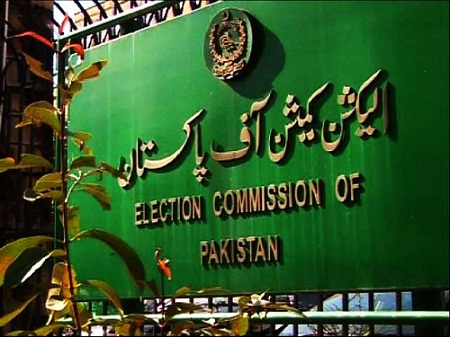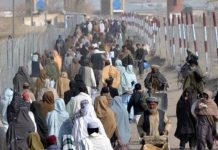Mehtab Pirzada
ISLAMABAD: The Election Commission of Pakistan (ECP) said Friday that the much-anticipated schedule for general polls would be issued 54 days ahead of the February 8 elections — expected to fall in the third week of December — as the political temperature in the country soars.
In June, the Pakistan Democratic Movement (PDM) government amended Section 57 of the Elections Act to give powers to the election organising body for fixing a date general election date, while defining the timeline of procedures from the announcement of the polls’ schedule till the polling day, which is about 54 days.
During an informal conversation with journalists, Chief Election Commissioner (CEC) Sikandar Sultan Raja was asked when the commission would release the election schedule. In response, he said: “Count 54 days backwards from February 8.”
The CEC mentioned that the updated constituency lists had been released, and all other election prerequisites were being completed smoothly. He said the ECP has been proactively handling election-related responsibilities ahead of schedule.
The timely announcement of the election schedule, the appointment of returning officers (ROs), and district returning Officers (DROs) will be ensured at an appropriate time, he added.
Political circles were casting doubts on timely elections as they were pressing on the election commission to issue the polling schedule, with others citing different reasons for their expectations of a delay in the already delayed polls.
However, the ECP notified the final list of delimitation of constituencies of the national and four provincial assemblies and had also rejected the reports of a possible delay in elections.
Per the notification issued by the election commission, according to Article 51(3) of the Constitution, the National Assembly consists of 266 general seats, with 60 seats reserved for women and 10 for non-Muslims.
Balochistan has a total of 20 NA seats, including 16 general and four reserved seats for women; Khyber Pakhtunkhwa has 45 general NA seats and 10 reserved seats for women; Sindh has a total of 75 NA seats of which 61 are general and the remaining 14 are reserved for women.
Punjab, population-wise the largest province, has the biggest share of 141 general NA seats and 32 seats reserved for women while the federal capital has representation of three general seats in the National Assembly with no seat reserved for women.
Article 106 is related to the constituencies of four provincial legislatures. Under this article, Balochistan comprises 51 general seats, 11 reserved for women and three for non-Muslims, bringing the total number to 65.
Likewise, Khyber Pakhtunkhwa consists of 115 general seats, 26 seats reserved for women and four seats for non-Muslims and the total number of seats in the legislature stands at 145.
Similarly, Sindh consists of 130 general seats, whereas 29 seats are reserved for women and nine seats for non-Muslims and the total number of seats is 168.
Moreover, Punjab comprises as many as 297 general seats, 66 reserved for women and eight for non-Muslims. The total strength of the provincial legislature is 371 seats.
Hence, the total number of general seats of the four legislatures is 593 out of which 132 are reserved for women and 24 are reserved for non-Muslims.

















